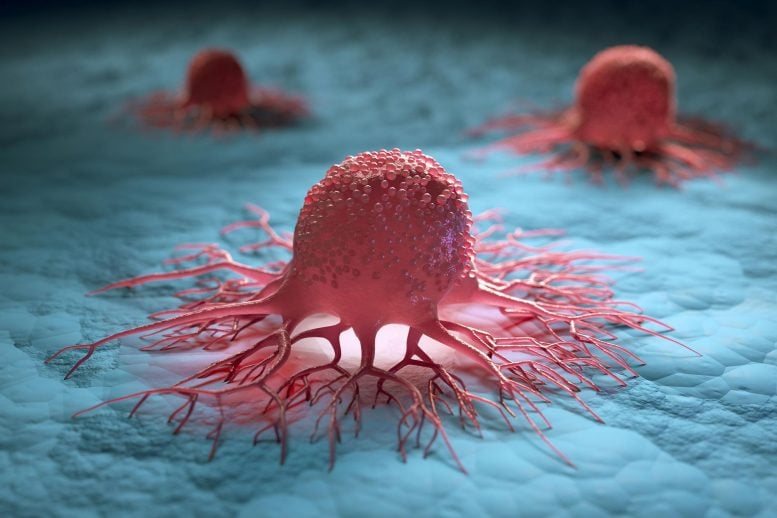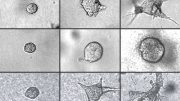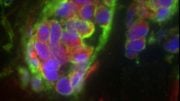
Circadian rhythms, which govern various cellular functions including gene expression and cell repair, can significantly impact cancer progression, metastasis, and even response to treatments, according to a study by ETH Zurich researchers. By leveraging this knowledge through chronotherapy, the delivery of medication and immune therapies at optimal times of the day, we can potentially improve cancer diagnosis accuracy, reduce treatment side effects, and enhance treatment success, although this timing can vary between different types of cancers and can be influenced by factors such as a patient’s sex and genetic background.
Your body’s internal clock, also known as the circadian rhythm, isn’t only responsible for managing your sleep patterns; it also has implications for cancer genesis, detection, and treatment strategies.
A recent review paper published in the journal Trends in Cell Biology discusses the influence of circadian rhythms on the growth and metastasis of tumors. The research suggests that optimizing the timing of cancer screenings and therapy sessions, in line with circadian rhythms, could enhance the precision of diagnosis and elevate the effectiveness of treatment regimens.
“The circadian rhythm governs most of the cellular functions implicated in cancer progression, and therefore its exploitation opens new promising directions in the fight against metastasis,” write the authors, molecular oncologists Zoi Diamantopoulou, Ana Gvozdenovic, and Nicola Aceto from the ETH Zurich in Switzerland.
Our circadian rhythms help our bodies synchronize different tasks throughout the day, including gene expression, immune function, and cell repair. We’ve long known that chronically disrupted circadian rhythms—as a result of erratic sleep patterns, jet lag, or shift work, for example—can predispose us to a number of health issues, including cancer.
More recent work has shown that circadian rhythms are not only involved in tumor onset but also govern cancer progression and metastasis, the colonization of secondary sites within the body.
Metastasis is the main cause of death in cancer patients. For metastasis to occur, cells need to break away from the primary tumor, enter the bloodstream, and then travel to and infiltrate a new organ.
Studies have shown that the rate at which cancer cells break away from the primary tumor and enter into the bloodstream oscillates rhythmically throughout the day, but the timing of this rhythm differs between cancer types. For example, breast cancer is more likely to metastasize at nighttime, while we’re asleep, whereas prostate cancer and multiple myeloma peak at other points during the day.
The authors argue that we could leverage this information when administering chemo- and immunotherapies to target tumor cells at the optimal time. The practice of delivering medication and immune therapies at specific times of day is known as chronotherapy.
“Circadian rhythm-based metastasis formation should be seen as an opportunity to intervene in the most timely and effective way,” the authors write. “Chronotherapy holds promise to be a valuable alternative treatment option in the fight against cancer.”
Clinical studies have shown that chronotherapy can reduce the severity of side effects experienced by patients and can also impact treatment effectiveness. For example, the authors describe a recent study in which melanoma patients who received immunotherapeutic drugs before 4:30 pm were nearly twice as likely to survive as patients who received the treatment later in the day. The optimal timing varies for different cancer types and therapeutics, and the authors also note that the clinical benefits of chronotherapy might be affected by factors such as the patient’s sex and genetic background.
Knowledge of the circadian rhythms of cancer cells could also aid cancer diagnosis. Cancer cells produce proteins at different rates throughout the day, and some of these proteins are used as diagnostic molecular markers. We could decrease the chances of misdiagnosing a patient by collecting and testing biopsies at the time of the day when the concentration of these proteins is highest.
“More mechanistic understanding of these processes will be required to fully unleash its potential on the clinical side,” the authors write. “Defining the circadian-rhythm-controlled timing of proliferation and release of circulating tumor cells into the bloodstream in additional cancer types may help to identify the optimal time window for therapy administration.”
Reference: “A new time dimension in the fight against metastasis” by Zoi Diamantopoulou, Ana Gvozdenovic and Nicola Aceto, 24 March 2023, Trends in Cell Biology.
DOI: 10.1016/j.tcb.2023.02.002
The study was funded by the European Research Council, the European Commission, the Swiss National Science Foundation, the Swiss Cancer League, and the ETH Zürich Foundation.









I have Metastatic breast cancer in liver. Currently having Enhertu treatments. Side effects: dizziness, weakness in body, constipation, insommnia. 2 treatments as of 06/4/2023.